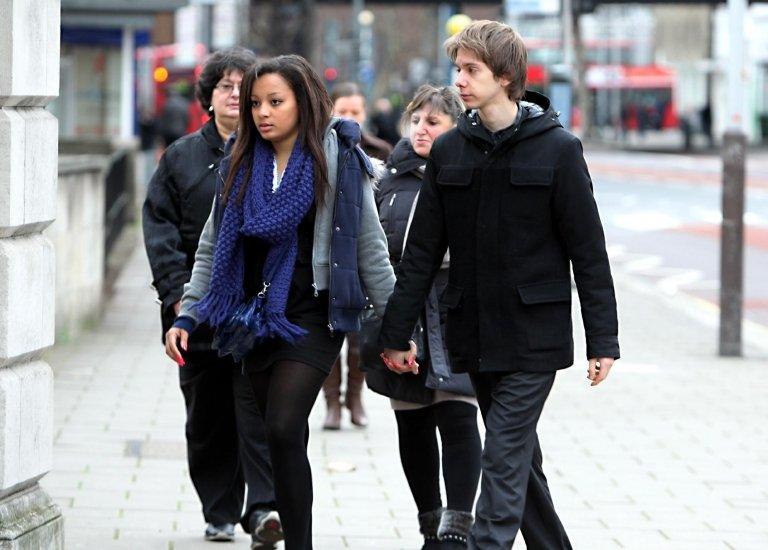London riots: Youth services cut in half since unrest
- Published
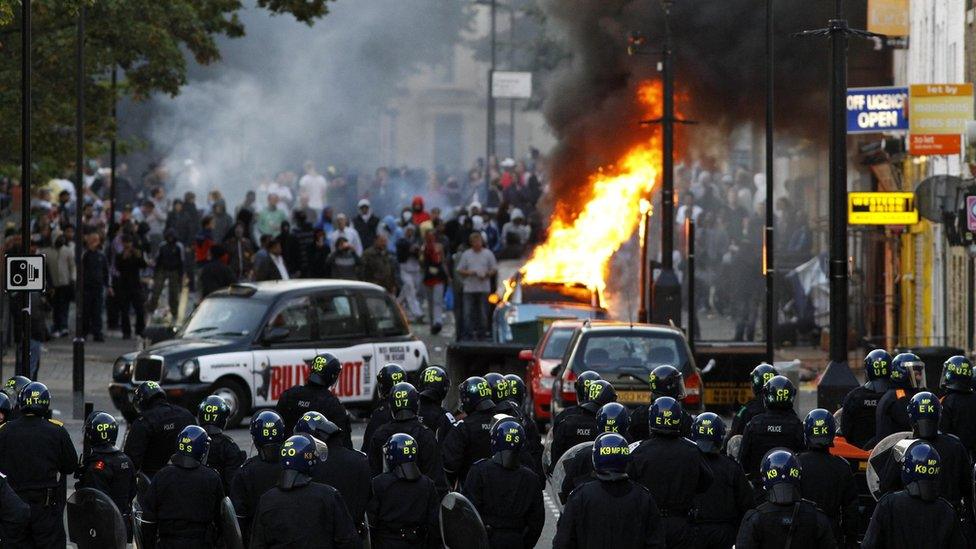
Rioting erupted in Tottenham on 6 August 2011
Council funding for youth services in the capital have been cut in half in the 10 years since the London riots, new figures show.
Rioting erupted in Tottenham on 6 August 2011 following the shooting of a local man, Mark Duggan, by police.
In 2012, the Riot Communities and Victims panel recommended, external that councils "maximise the availability" of youth services to prevent future riots.
Since then, 110 youth centres have closed in London.
The impact of these cuts are "impossible to calculate", Sian Berry, Green Party member of the London Assembly said.
Ms Berry, who collected these figures, said: "One contact with a youth worker could change a persons life.
"Having someone who will listen to you when no one else us treating you like a person, and is able to give you some agency over your life is vital for young people.
"We've lost the chance to support those young people who affected by the riots but we have another chance with the current generation."
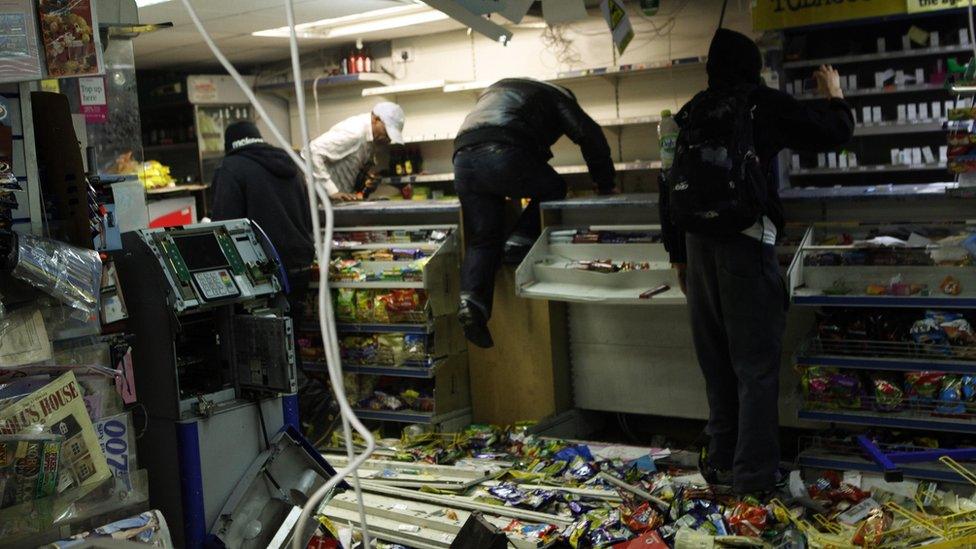
Looters ransacked shops across London
During the summer riots, police officers came under attack from thousands of people involved in civil unrest, setting cars alight and looting.
Lawlessness spread over subsequent nights to 22 out of London's 33 boroughs, from Ealing in the west and Croydon in the south.
Five people died, and thousands were arrested.
Over the coming days, unrest broke out in cities across England in perhaps the largest example of disorder in post-war Britain.
In total, around £300m of property damage was done across England.
Over 3,800 claims for damages were made in London alone.

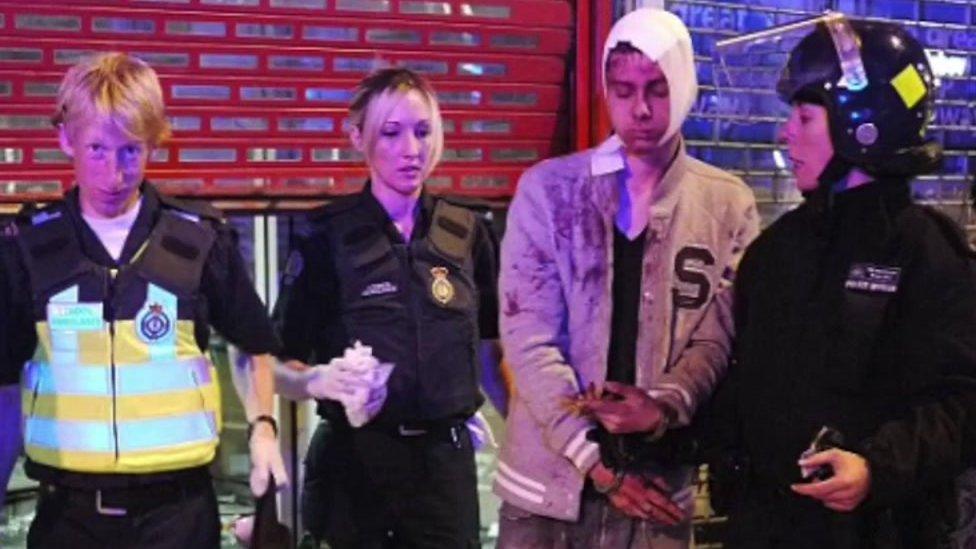
Daniel Sartain-Clarke was caught in a looted Currys in Clapham Junction on the third night of the riots
Daniel Sartain-Clarke, who became the "poster boy" for the London riots, says he "wouldn't be here now" without his youth worker Andy.
He was jailed for 11 months after being caught in a looted Currys electronic shop in Clapham Junction.
While in prison, Mr Sartain-Clarke said his youth worker was his only visitor.
"He was writing letters. I didn't have that from anyone else," he said. "He taught me that I could trust again.
"He definitely helped in a sense of me knowing where I am now and where I am today."

The then Deputy Prime Minister Nick Clegg set up a commission to investigate the causes of the riot and to hear from affected communities.
The panel recommended local authorities ensure that young people had access to youth groups and services at weekends and over the school holidays.
Local authorities were to "maximise the availability of buildings, facilities and equipment to local youth groups and services", the report said.
But youth services budgets have been cut by 44% since 2011 across London, equivalent to a £36m cut.
From a starting point of nearly 300 youth centres across London, over 130 have closed, figures obtained under a Freedom of Information request show.
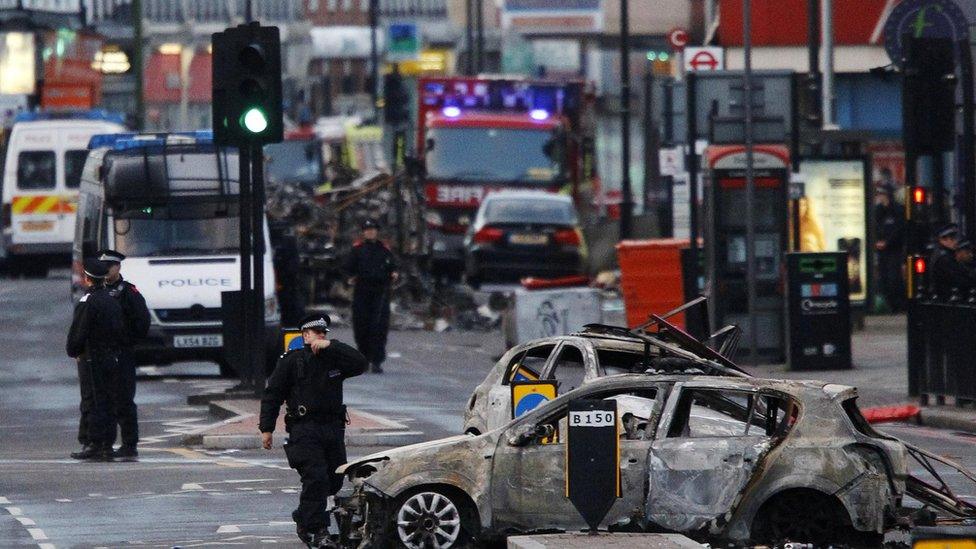
Cars and shops set on fire as rioting swept across London
The study by the Green Party shows more than 600 full-time youth worker jobs have been cut by London councils over the last 10 years.
In total, over £240m has been removed from youth service budgets in London across the decade, compared to if councils had maintained spending at 2011 levels.
A spokeswoman for the Department for Digital, Culture, Media and Sport said "we absolutely recognise the vital role youth services play".
The current government pledged to create, external a £500m Youth Investment Fund to support youth services.
This money "builds on more than £12bn given to local authorities this year, who have the statutory duty to allocate funding to youth services in line with local needs," the spokeswoman added.
- Published6 August 2016
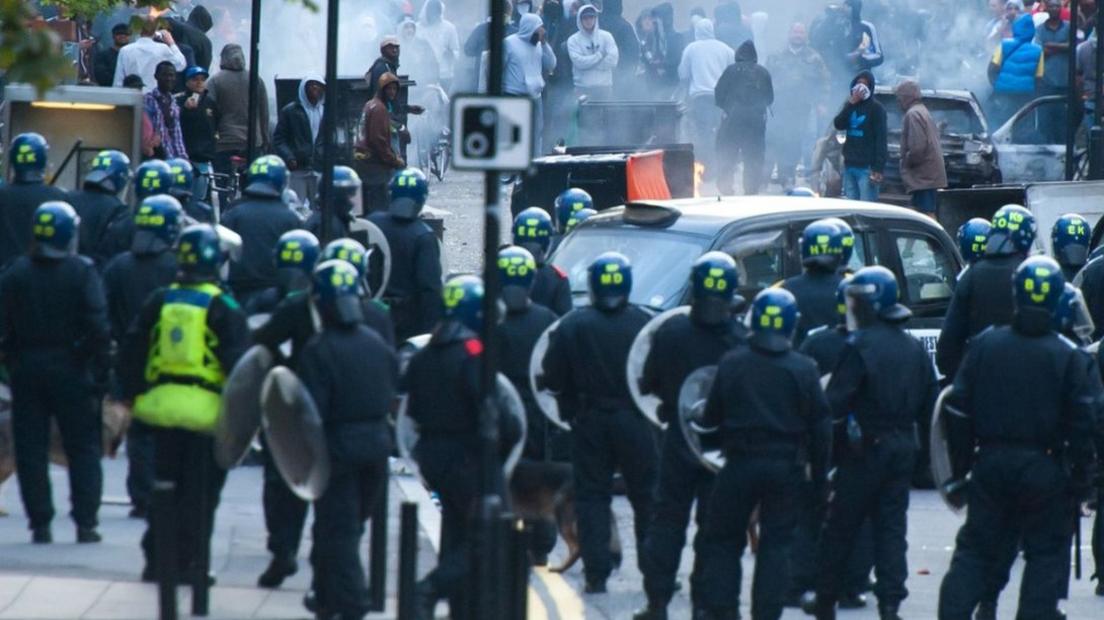
- Published8 August 2011
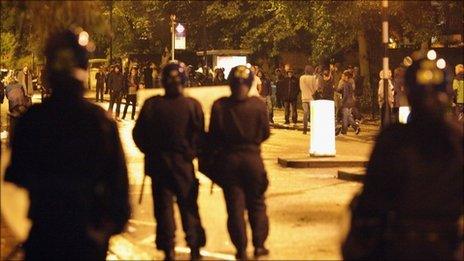
- Published10 January 2012
